Marian College prides itself on being a Kildare Ministries school in the Brigidine tradition. Through the example of St Brigid and the Brigidine sisters that have followed her, we aim to bring these words of St Brigid’s Prayer to life.
2020 has hit everybody hard but it has been a credit to the whole Marian College community that we have been able to stay strong together, supporting all, and doing what has been needed to always move forward.
2020 was already penciled in to be a big year for the Religious Education faculty as we completed the full roll-out of the Ballarat Diocese’s new Religious Education curriculum. This new curriculum, Awakenings, builds upon the previous one by allowing us the opportunity to bring our school’s identity to the fore in our units, while also entering into a respective dialogue with our communities, whatever their backgrounds or beliefs.
With COVID-19 impacting the way we taught in 2020, in order to keep this dialogue going throughout Remote Learning required a great commitment from not only the RE Faculty but the students as well.
Gone was the familiarity and support of the free flowing classroom discussions where students were encouraged to explore themes such as identity, decision making and spirituality, replaced by the stilted conversations and all of the “you’re on mute” comments that Zoom brings.
However, necessity breeds creativity and with a brand new curriculum to work with we were able to implement new strategies and tasks that supported the students to continue to engage in topics and to grow with their own identities, whether that be in faith or not.
COVID-19 will continue to impact our communities for the foreseeable future but with St Brigid as our guide to Christ and the Kildare Ministries values of Wonder, Courage, Hospitality, Hope, Compassion and Justice instilled in all that we do, we will continue to support our students as they grow academically as well as spiritually no matter what obstacles they face.

